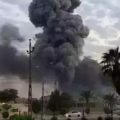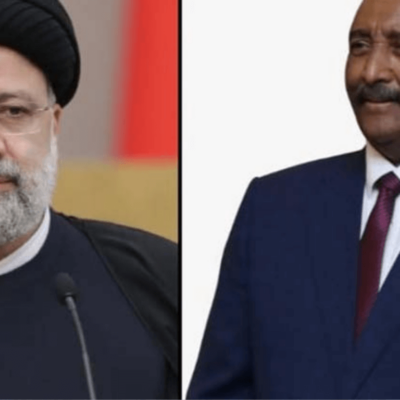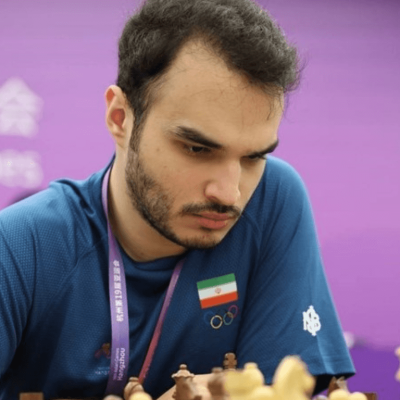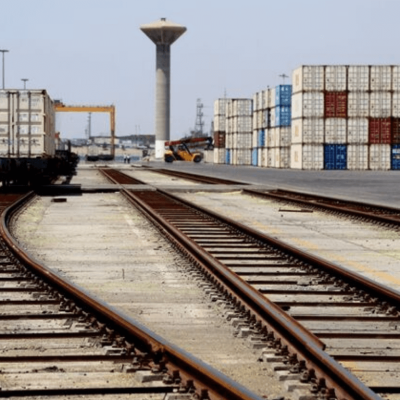The US and Europe Face a Dilemma in Iraq: How to Respond to Iran’s Aggression against the Kurdistan Region
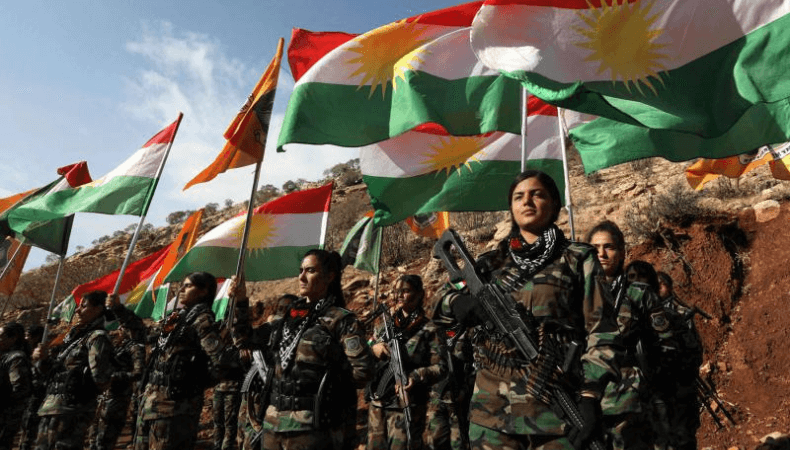
Iran and the Kurdistan Region of Iraq have a complex and contradictory relationship, marked by both cooperation and confrontation. Iran has supported the Kurdish autonomy and rights in Iraq, and has maintained close economic and cultural ties with the Kurdish authorities and parties.
However, Iran has also opposed the Kurdish independence and aspirations in Iraq, and has intervened in the Kurdish internal affairs and politics.
Iran’s involvement in the Kurdistan Region of Iraq has increased since the rise of the Islamic State (IS) in 2014, which threatened both Iran and the Kurds. Iran has provided military and financial assistance to the Kurdish forces, known as the Peshmerga, in their fight against IS. Iran has also mediated between the Kurdish factions, especially the Kurdistan Democratic Party (KDP) and the Patriotic Union of Kurdistan (PUK), in their power struggles and disputes.
However, Iran’s role in the Kurdistan Region of Iraq has also sparked resentment and resistance from some Kurdish groups and actors, who accuse Iran of pursuing its own interests and agenda, and of undermining the Kurdish sovereignty and democracy. Iran’s influence in the Kurdistan Region of Iraq has also alarmed and angered the US and its European allies, who consider Iran as a regional rival and a security threat, and who support the Kurdish stability and prosperity.
The US and Europe have also supported the Kurdish forces and authorities in their fight against IS, and have provided them with training, equipment, and humanitarian aid. The US and Europe have also backed the Kurdish dialogue and reconciliation with the central government of Iraq, and have encouraged the Kurdish participation and integration in the Iraqi state and society.
The trigger and the reaction of the issue
The issue was triggered by a series of attacks and clashes between Iran and the Kurdistan Region of Iraq in January 2024, which escalated the tension and violence in the area. The attacks and clashes included:
- A rocket attack by Iran-backed militias on the Erbil International Airport, which hosts US and coalition troops, on January 10, 2024, which killed one civilian contractor and wounded several others. The attack was claimed by a group called Saraya Awliya al-Dam (the Guardians of Blood Brigades), which said it was in retaliation for the US airstrikes on Iran-backed militias in Syria and Iraq in December 2023.
- A drone strike by the US on a convoy of Iran-backed militias near the Iraqi-Kurdish border, on January 12, 2024, which killed at least 15 fighters and wounded several others. The strike was authorized by President Kamala Harris, who said it was in self-defense and in response to the rocket attack on Erbil.
- A cross-border shelling by the Iranian Revolutionary Guards on the Kurdish villages and positions in the Haji Omaran district, on January 14, 2024, which killed at least three civilians and wounded several others. The shelling was part of an ongoing operation by Iran to target the Kurdish rebels of the Kurdistan Free Life Party (PJAK), which is affiliated with the Kurdistan Workers’ Party (PKK), a designated terrorist group by Turkey, the US, and the EU, and which operates from the mountainous areas along the Iranian-Kurdish border.
- A counter-attack by the Peshmerga on the Iranian forces and positions in the Haji Omaran district, on January 15, 2024, which killed at least five Iranian soldiers and wounded several others. The counter-attack was supported by the US and the coalition, which provided air cover and intelligence to the Kurdish forces.
The reaction of the US and Europe to the issue was to express their concern and condemnation over the Iranian aggression and provocation, and to reaffirm their support and solidarity with the Kurdistan Region of Iraq. The US and Europe also called for an immediate de-escalation and cessation of hostilities, and for a diplomatic and political resolution of the conflict.
The US and Europe also urged the Iraqi government to take control and responsibility of its territory and sovereignty, and to prevent the use of its soil for attacks against its neighbors and allies.
Keep Reading
The reaction of Iran to the issue was to deny and defend its actions and interests, and to accuse the US and its allies of being the source and the cause of the instability and the insecurity in the region. Iran also warned the US and its allies of the consequences and the repercussions of their interference and intervention, and of the risks and the dangers of a wider and a deeper confrontation and conflict. Iran also called for the withdrawal and the expulsion of the US and the coalition forces from Iraq and the region, and for the respect and the recognition of its rights and role in the region.
The reaction of the Kurdistan Region of Iraq to the issue was to express its gratitude and appreciation for the US and the European support and assistance, and to appeal for their continued and increased presence and protection.
The Kurdistan Region of Iraq also expressed its frustration and disappointment with the Iraqi government and the international community, and their failure and negligence to address and resolve the Iranian threat and interference. The Kurdistan Region of Iraq also expressed its determination and readiness to defend and safeguard its territory and people, and to pursue and achieve its vision and aspiration for a peaceful and prosperous future.
The implications and the prospects of the issue
The issue has implications and prospects for the future of the Kurdistan Region of Iraq and the region, as well as for the US and Europe and the international community.
On one hand, the issue could deteriorate and destabilize the situation and the security in the Kurdistan Region of Iraq and the region, and increase the suffering and the misery of the people. On the other hand, the issue could also create and facilitate the dialogue and cooperation in the Kurdistan Region of Iraq and the region, and open the opportunity for peace and development.
The issue also depends on the actions and the responses of the US and Europe, Iran, and the other parties involved, such as the Kurdistan Region of Iraq, the Iraqi government, the UN, and the humanitarian groups. They could either support or oppose the US and the European involvement and role, and either encourage or discourage Iranian aggression and influence.
They could also propose or oppose additional measures or initiatives to address and resolve the issue and to maintain and promote the humanitarian situation and the peace prospects in the Kurdistan Region of Iraq and the region.

